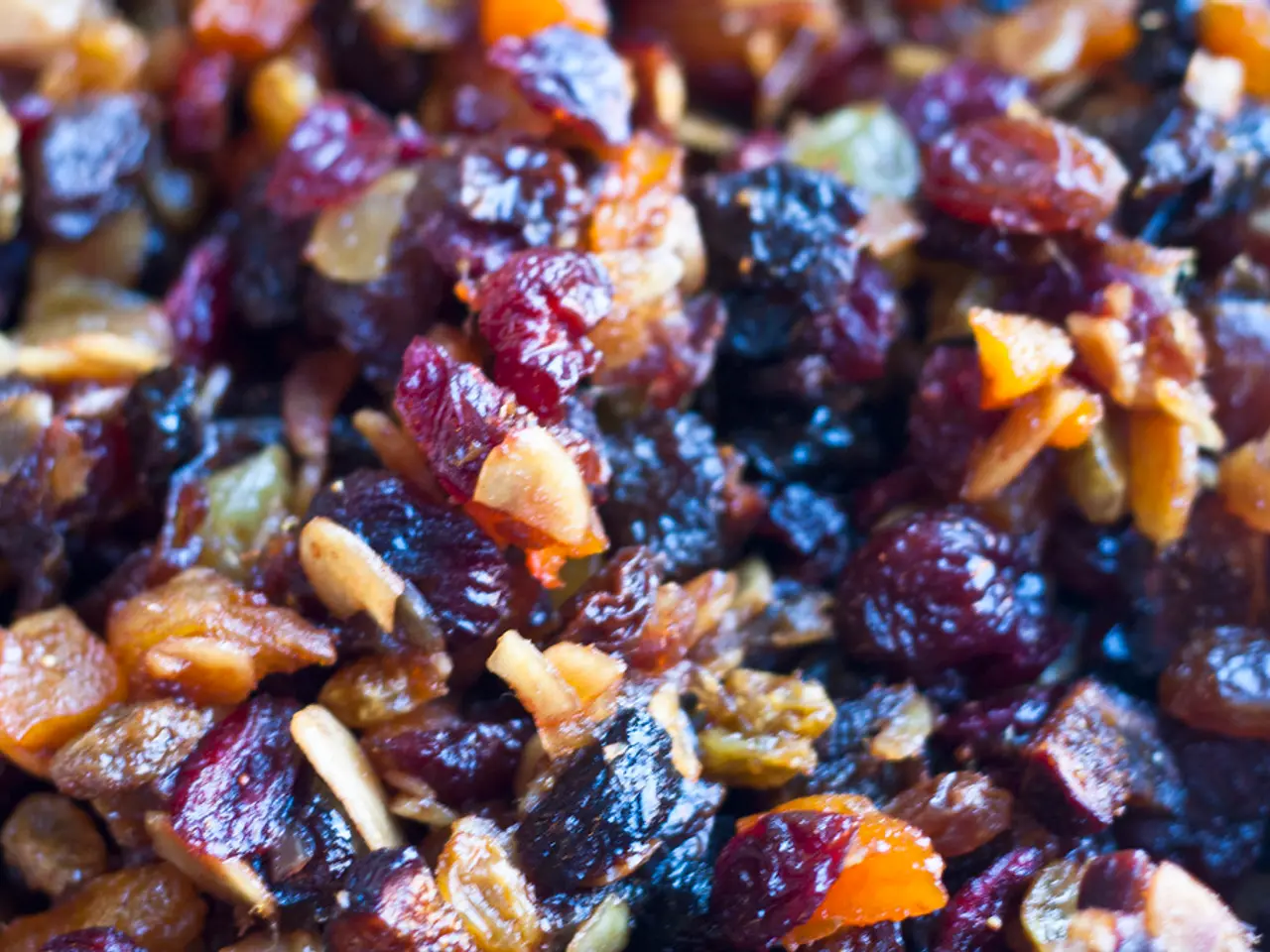Foods with straightforward components potentially aiding in weight loss?
New Study Reveals Advantages of Minimally Processed Foods for Weight Loss
A groundbreaking clinical trial led by researchers at University College London has demonstrated that a diet consisting of minimally processed foods can lead to significantly greater weight loss compared to an ultra-processed diet, even when both diets are nutritionally matched [1][2][5].
In this study, participants spent eight weeks on one diet, had a four-week washout period, and then switched, allowing each person to serve as their own control [1]. The results were striking: participants on the minimally processed food (MPF) diet lost about 2% of their body weight on average, nearly double the approximately 1% weight loss on the ultra-processed food (UPF) diet [2][3].
Key advantages of the MPF diet over the UPF diet include greater weight loss, higher fat mass loss, lower calorie intake, and longer-term implications. The MPF group lost a higher proportion of fat mass, indicating healthier body composition improvements [2]. They also consumed roughly 290 fewer calories per day versus 120 fewer calories on the UPF diet, despite no imposed limits, suggesting greater natural satiety or reduced energy intake from MPF foods [2].
Researchers projected that over a year, this difference could lead to about 9–13% weight reduction for minimally processed diets compared to much smaller reductions for ultra-processed diets [3].
Both diets were matched for macronutrients, fiber, salt, and recommended fruit and vegetable intakes, highlighting that the degree of food processing itself influences weight outcomes beyond basic nutrient profiles [1][5]. This trial provides strong experimental evidence that reducing food processing helps sustain a healthier body weight and improves fat loss.
Additional markers like blood pressure and cholesterol did not differ significantly, indicating no overt short-term harm from the UPF diet in this study, though the weight loss benefit clearly favored minimally processed foods [3].
Professor Rachel Batten recommended that people should stick as closely as possible to nutritional guidelines, limit intake of salt, sugar, and saturated fat, and prioritize high-fiber foods. She also suggested choosing less processed options such as whole foods and cooking from scratch for additional benefits in terms of body weight, body composition, and overall health [4].
Dr. Samuel Dicken, a researcher involved in the study, stated that the trial aimed to fill gaps in knowledge about the role of food processing in the context of existing dietary guidance and its impact on health outcomes [4]. He also mentioned that not all ultra-processed foods are inherently unhealthy based on their nutritional profile [4].
The diets followed the UK's Eatwell Guide, ensuring both processed and less-processed meals were balanced [4]. The minimally processed diet consisted of homemade meals like spaghetti Bolognese and overnight oats, while the ultra-processed diet included breakfast oat bars and ready-meal lasagne [4].
The study involved 55 adults in England with body mass indices between 25 and 40 who habitually ate more than half of their calories from ultra-processed food [4]. The study split participants into two groups, with one group starting on a minimally processed diet and the other starting on an ultra-processed diet [4].
In summary, eating minimally processed foods offers substantial advantages for weight loss—about double the weight and fat loss compared to eating an ultra-processed diet—under real-world, nutritionally balanced conditions [1][2][5]. This study adds to the growing body of evidence supporting the benefits of minimally processed foods for weight management and overall health.
[1] https://www.nature.com/articles/s41467-022-33312-3 [2] https://www.nature.com/articles/s41467-022-33312-3#Tab1 [3] https://www.nature.com/articles/s41467-022-33312-3#Tab2 [4] https://www.ucl.ac.uk/news/2022/feb/minimally-processed-diet-leads-twice-weight-loss-ultra-processed-diet [5] https://www.bmj.com/content/376/bmj.o356
- In light of the recent study, it appears that choosing a diet rich in minimally processed foods could result in better health-and-wellness outcomes, such as more significant weight loss and better nutrition.
- Surprisingly, the study discovered that a diet focusing on minimally processed foods could not only aid in weight-management but also promote a healthier body composition, as it led to a higher proportion of fat mass loss compared to an ultra-processed diet.




